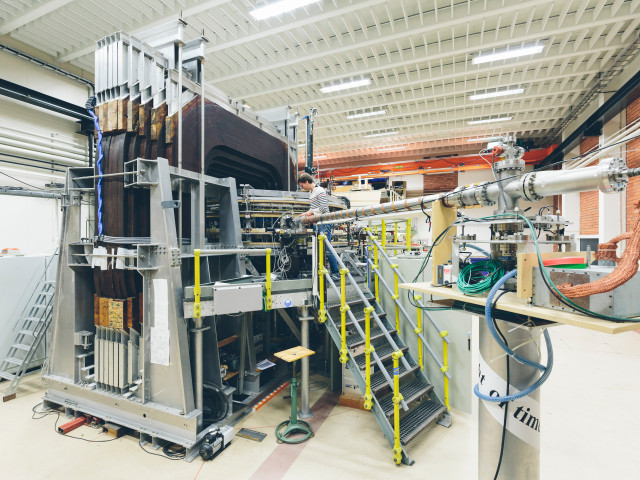Semiconductor photonics, with emphasis on optoelectronic and photonic component applications, properties of semiconductor materials, low-dimensional quantum structures and wavelength-scalable structures, trends in the development of semiconductor photonics and photonic integrated systems.
SK2907 Semiconductor Photonics 7.5 credits

Information per course offering
Course offerings are missing for current or upcoming semesters.
Course syllabus as PDF
Please note: all information from the Course syllabus is available on this page in an accessible format.
Course syllabus SK2907 (Spring 2026–)Headings with content from the Course syllabus SK2907 (Spring 2026–) are denoted with an asterisk ( )
Content and learning outcomes
Course contents
Intended learning outcomes
After passing the course, the student must be able to:
- explain the physical principles of semiconductor-based optoelectronic and photonic components
- evaluate the properties of semiconductor materials and components for specific applications
- conduct experiments with photonic semiconductor materials and components
Literature and preparations
Specific prerequisites
Approved thesis at bachelor's level from a science-related program
English B/English 6
Equipment
No information inserted
Literature
No information inserted
Examination and completion
If the course is discontinued, students may request to be examined during the following two academic years.
Grading scale
A, B, C, D, E, FX, F
Examination
- LAB1 - Labs, 1.5 credits, grading scale: P, F
- TEN1 - Written exam, 6.0 credits, grading scale: A, B, C, D, E, FX, F
Based on recommendation from KTH’s coordinator for disabilities, the examiner will decide how to adapt an examination for students with documented disability.
The examiner may apply another examination format when re-examining individual students.
Opportunity to complete the requirements via supplementary examination
No information inserted
Opportunity to raise an approved grade via renewed examination
No information inserted
Examiner
No information inserted
Ethical approach
- All members of a group are responsible for the group's work.
- In any assessment, every student shall honestly disclose any help received and sources used.
- In an oral assessment, every student shall be able to present and answer questions about the entire assignment and solution.
Further information
Course room in Canvas
Registered students find further information about the implementation of the course in the course room in Canvas. A link to the course room can be found under the tab Studies in the Personal menu at the start of the course.
Offered by
Main field of study
Engineering Physics
Education cycle
Second cycle
Add-on studies
No information inserted